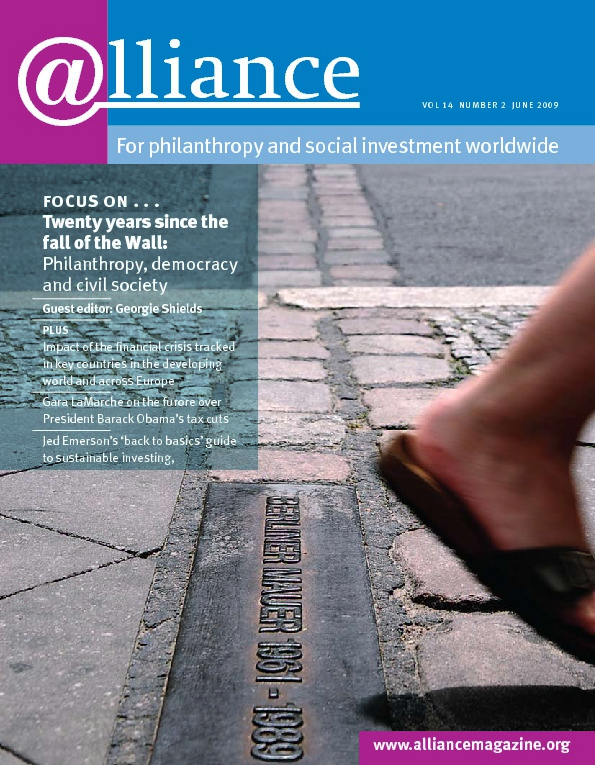The European Fund for the Balkans was established in 2007 by four European Foundations: Robert Bosch Stiftung, King Baudouin Foundation, Compagnia di San Paolo and the ERSTE Foundation. What is the main aim of the Fund? Does its work reflect a distinctly European approach to civil society development? Is there too much emphasis on building institutions? Alliance talked to Sandra Breka of Robert Bosch Stiftung.
The main aim of the European Fund for the Balkans (EFB) is to bring the Western Balkans closer to the European Union, says Breka. It was established as a direct follow-up to the recommendations of the International Commission on the Balkans, for which Breka served as a Senior Staff Member. Set up in 2003 on the initiative of the Robert Bosch Stiftung, the Commission published its report The Balkans and Europe’s Future in 2005.
‘At the heart of its recommendations,’ Breka explains, ‘lies a Member State building strategy which includes as priorities the development of functioning state administrations and building constituencies that will carry forward the process of reform and democratization in the Balkans. Ultimately, its findings challenge European foundations to engage more actively and more prominently in the countries of the region with adequate funding strategies and activities. It points out that while the US and some other countries are still active, though increasingly less so, in South-east Europe, the region is now a European responsibility. The countries concerned are now within the borders of the EU.’
How does EFB’s focus differ from that of the Balkan Trust for Democracy, which is an American initiative, though it has some European participants. Does the EFB approach reflect a distinctive European approach to civil society? Breka’s answer is an emphatic ‘No’. ‘There are differences between the European and US approaches to civil society development,’ she says, ‘but I wouldn’t say that EFB reflects them. EFB is conceptualized as being complementary to the Balkan Trust. We wanted to identify specific needs, to find a niche where the Fund can have real added value.’
One big difference is that EFB is largely operational while the Balkan Trust is mostly grantmaking. Isn’t this a difference between US and European foundations? ‘No,’ Breka insists, ‘in this case it’s a difference between EFB and the Balkan Trust. There are different types of foundations; it doesn’t have much to do with European or US approaches.’
A number of contributors to this Alliance special feature have suggested that there has been too much emphasis on building institutions as opposed to encouraging citizen participation? Does this criticism apply to EFB? ‘In the 1990s civil society support was seen by many as the cure for everything,’ Breka recalls. ‘In the Balkans, the international community was dealing with governments and regimes that made cooperation difficult or impossible so the focus was very much on civil society, treating it almost as a surrogate for governments. “Waves” like this, when catchphrases are used, tend to convey simplistic and one-dimensional approaches. I believe that today there is a consensus that we need a more diversified approach to dealing with the challenges the region faces, working with civil society actors and state institutions, and there is an increased interest in public-private partnerships. Supporting “civic participation” won’t suffice. EFB is trying to be as inclusive as possible within its mission. You have to have a comprehensive approach to be successful in the end.’
Of course, she emphasizes, EFB with its limited resources can’t do everything. Here again the key word is ‘complementarity’. ‘We look at what other multilateral, state and private actors are doing and hope to engage in a constructive way.’
Sandra Breka is Head of the Berlin Office, Robert Bosch Stiftung. Email sandra.breka@bosch-stiftung.de
For more information http://balkanfund.org






Comments (0)